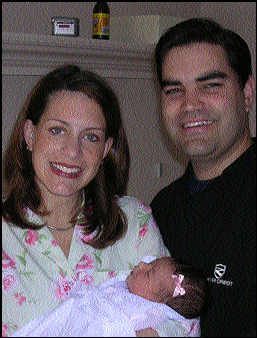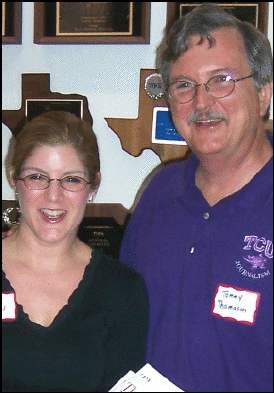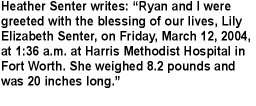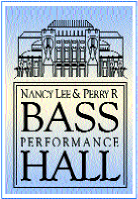
The Society of American Business Editors and Writers will announce the winners in its 10th annual Best in Business contest at the organization's national conference May 2-4 at the Renaissance Worthington. More at SABEW.org. ... The Institute on Political Journalism, an educational program sponsored by the Fund for American Studies and operated in cooperation with Georgetown University, is accepting entries for its annual journalism awards. Winners receive $5,000 and a bronze eagle trophy to be given out at an event in Washington, D.C., in the summer. More at tfas.org/programs/ipjawards.htm, or e- director Traci Talerico at ttalerico@tfas.org.
SPJ national update: Energy in the dark, cops in the kitchen, pen-and-inkers in the lurch, and Matrix gets bad review. The Reporters Committee for Freedom of the Press, SPJ and the American Society of Newspaper Editors filed a Supreme Court friend-of-the-court brief in the issue of access to the meetings of the national energy task force chaired by Vice President Dick Cheney. The groups argue that access would provide a check on misconduct and not interfere with the president's constitutional duties. More here. ... In a groundbreaking 5th Circuit Court of Appeals decision that legal experts say will affect everyone, police officers in Louisiana no longer need a warrant to conduct a brief search of a home or business. Leaders in law enforcement say it will provide safety to officers. Two dissenting judges called it the "road to hell." More here. ... After a month and no takers, "Doonesbury" creator Garry Trudeau (abetted in all things cartoon-y by his artist alter ego, UTA ex Don Carlton) called off his "Bush Guard Service" contest, which offered $10,000 cash to anyone who could "definitively corroborate Mr. Bush's claim" that three decades before he became president, he served in the Alabama National Guard. Lacking a credible witness to take the prize, Trudeau mailed a personal check for $10,000 to the USO. ... Wisconsin and New York are the latest states to abandon the Matrix data-sharing program. The Multi-State Anti-Terrorism Information Exchange gives law enforcement copious information culled from government and commercial databases, including driver's license pictures, addresses, names of neighbors and relatives, even domain-name registrations and hunting permits. Participating states agree to feed their automobile and driver's license databases into a centralized computer. Thirteen states representing more than 50 percent of the population kick-started the program, which initially received $12 million from the Department of Homeland Security and the Justice Department. Only Michigan, Ohio, Florida, Connecticut and Pennsylvania remain.
SPJ national update II: Declassify this, and FOI victories in South Dakota, Tennessee and New York. Former U.S. counterterrorism chief Richard Clarke asked the White House to make public his testimony to Congress as well as other documents about how the administration has handled the terror threat. Senate majority leader Bill Frist called for declassifying Clarke's July 2002 testimony before a hearing of the Senate and House of Representatives Intelligence committees. "Let's declassify all six hours of my testimony," Clarke said on NBC's "Meet the Press." "Let's take all of my e-mails and all of the memos that I sent to the national security adviser and her deputy from Jan. 20 to Sept. 11, and let's declassify all of it." ... South Dakota Gov. Mike Rounds on March 2 signed legislation that eases free-speech restrictions and increases penalties for open meeting violations. A task force spent 15 months working to reform state law. In Tennessee, Gov. Phil Bredesen signed a law March 12 that requires state colleges and universities to disclose certain types of disciplinary records involving sex offenses, and possession of alcohol or drugs by a student under 21. In New York, the state court system will start making all but a few records available on the Internet. A report suggests making records available to the same extent there as at the courthouse. Go here and here and here.
SPJ national update III: Weapons of mass deception. Eighteen journalism groups, led by the Association of Health Care Journalists and including SPJ, have asked the Department of Health and Human Services to stop using video releases that look like authentic news reports. On March 16 The New York Times reported that the Bush administration paid people to pose as journalists praising the new Medicare law, including expanded coverage of prescription medicines. "Government officials have a duty to communicate to the public," noted AHCJ president Andrew Holtz, "but they should speak for themselves and not hide behind a paid announcer who is falsely identified as a reporter. " More here and here. ... Medicare's chief actuary told lawmakers March 24 that he gave analyses last June to the White House and the president's budget office predicting that prescription drug benefits being drafted on Capitol Hill would cost $150 billion more than President Bush said he wanted to spend. Richard S. Foster said administration officials threatened to fire him if he provided lawmakers with his cost estimates. A truthful estimate likely would have torpedoed the White House-backed Medicare prescription-drug plan. The House of Representatives passed the benefit by five votes in November. More here.















































